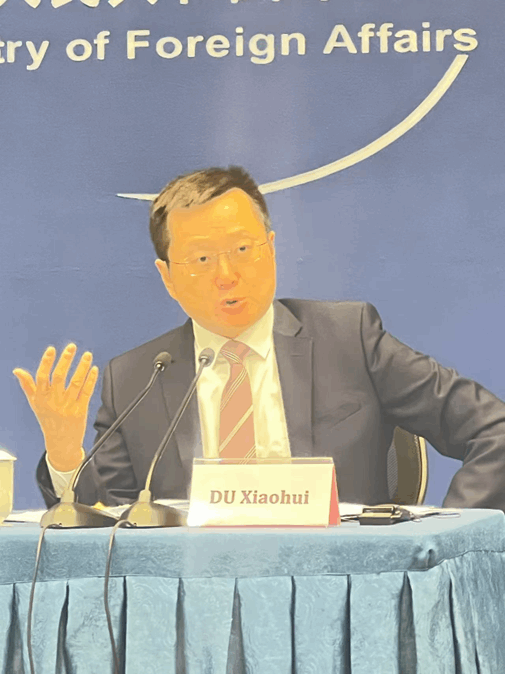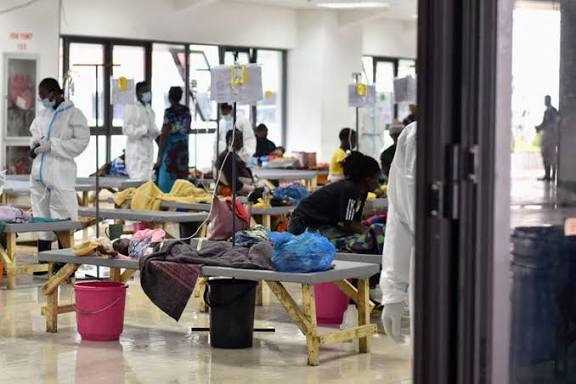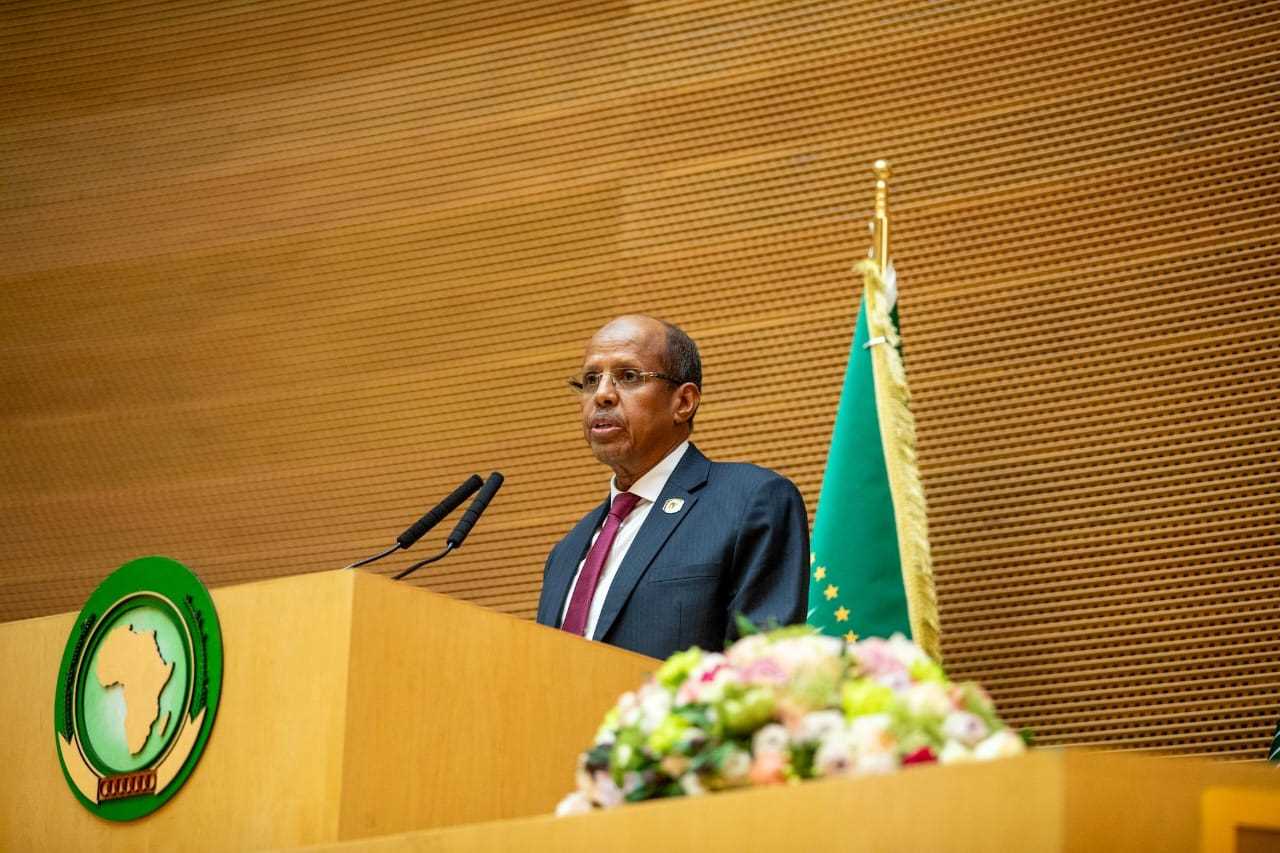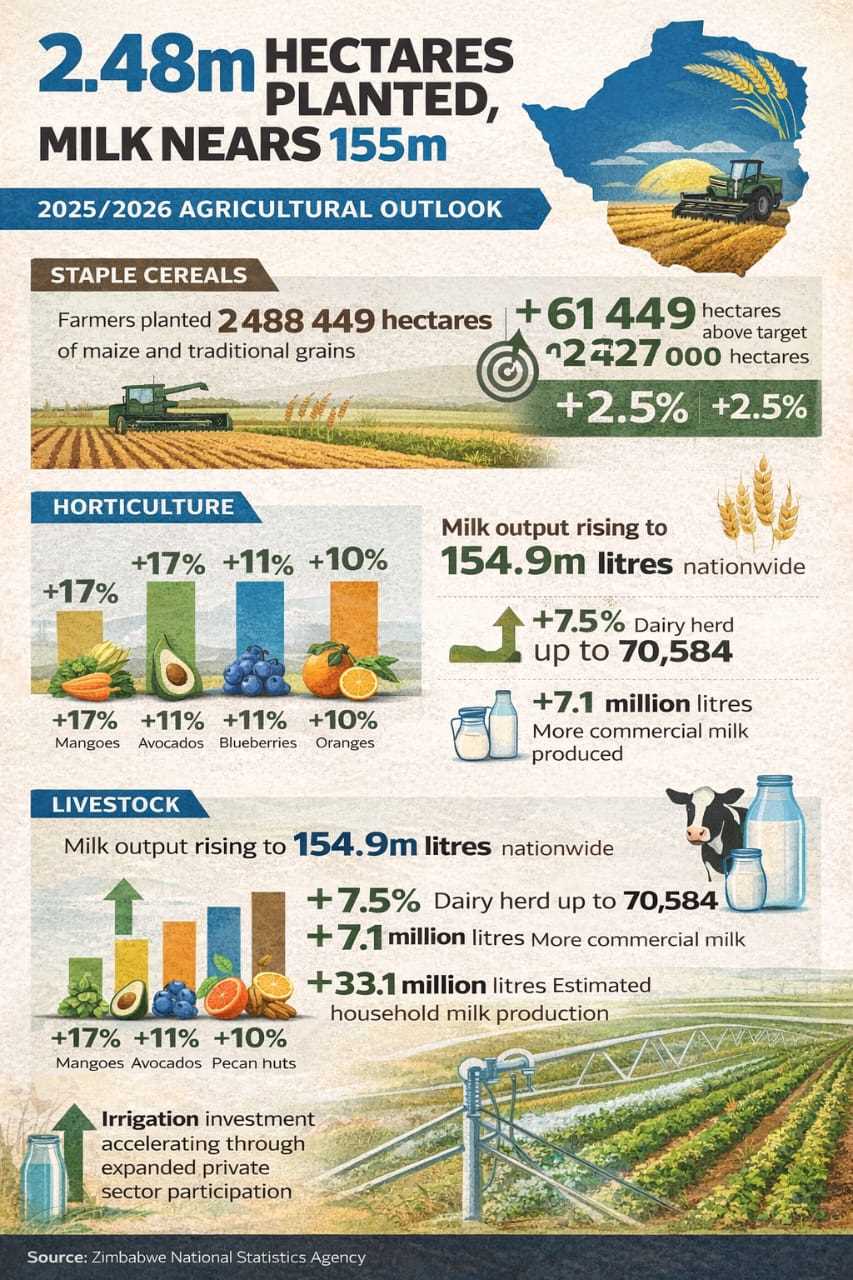
Monica Cheru—Managing Editor
Beijing— China is opening its doors wider, but it is up to Africa to walk through. That was the key message from Du Xiaohui, Director-General for African Affairs at the Ministry of Foreign Affairs, during a dialogue with African journalists in Beijing this Wednesday.
Addressing the media delegation made up of journalists in China for the China International Press Communication Center program, Du highlighted “a new phase” of China-Africa cooperation anchored on shared prosperity, green development, and technological transformation—but stressed that Africa must play a more active role to realize the benefits.
Du expressed concern that despite China’s Zero Tariff Initiative—which allows over 8,800 African products to enter China duty-free—uptake has been nonexistent.
He said no African countries have applied to Chinese customs to initiate the flow of goods to China. He said the small-scale producers who stand to benefit from the opening up of China’s gigantic market cannot handle the bureaucracy that must be undertaken at the national level.
He said the 0 tariff regime, which has been extended to 53 nations that China has diplomatic relations with, is a way of building up global south resilience in the face of adverse global pressures such as unilateral and illegal tariffs imposed by other quarters.
Since 2022, China has extended zero-tariff treatment to 98% of taxable items from 21 least developed countries in Africa, including Zimbabwe, Zambia, Rwanda, and Ethiopia. But according to China’s customs data, less than 25% of eligible product lines have seen significant export growth, suggesting poor utilization.
Du urged African governments to familiarize themselves with customs procedures, align certification systems, and build institutional capacity to support small producers.
Related Stories
China imported $117 billion worth of goods from Africa in 2023, with crude oil, minerals, and agricultural products dominating. However, non-extractive exports—such as textiles, crafts, and processed foods—remain negligible.
Du outlined Beijing’s vision for Africa-China cooperation to move beyond resource extraction into value-added production, clean industries, and knowledge-based sectors through high-quality development.
This message aligns with China’s Belt and Road Initiative’s emphasis on “small but smart” projects and people-centered growth. In the past five years, China has funded over 100 agro-processing and light manufacturing hubs across Africa.
Du Xiaohui also placed heavy emphasis on climate-conscious development, noting that Africa and China have a shared interest in protecting the environment while growing economies.
China has pledged $10 billion in green development financing for Africa under the Forum on China-Africa Cooperation framework. These funds include policy tools, concessional loans, and blended finance.
Du said China is ready to help Africa scale up e-commerce, cross-border payments, and digital logistics, particularly for small and medium enterprises so that they can reach global consumers.
He also said that China and African countries should move towards currency sovereignty by exploring settlements in sovereign currencies rather than relying solely on the US dollar. Zimbabwe would greatly benefit from settling trade in renminbi, reducing forex costs and delays, as well as decreasing demand for the USD in daily transactions.
China-Africa AI Research Exchange Program, to be launched later this year as one of several joint science initiatives.
Du’s remarks add weight to signals of a shift in China’s Africa diplomacy—from infrastructure-heavy aid to more strategic, sustainable, and innovation-driven partnerships.
With Africa’s population set to reach 2.5 billion by 2050 and consumer spending projected to hit $2.1 trillion by 2025, the case for deepening this partnership is compelling—but only if both sides bring equal energy to the table.




















Leave Comments